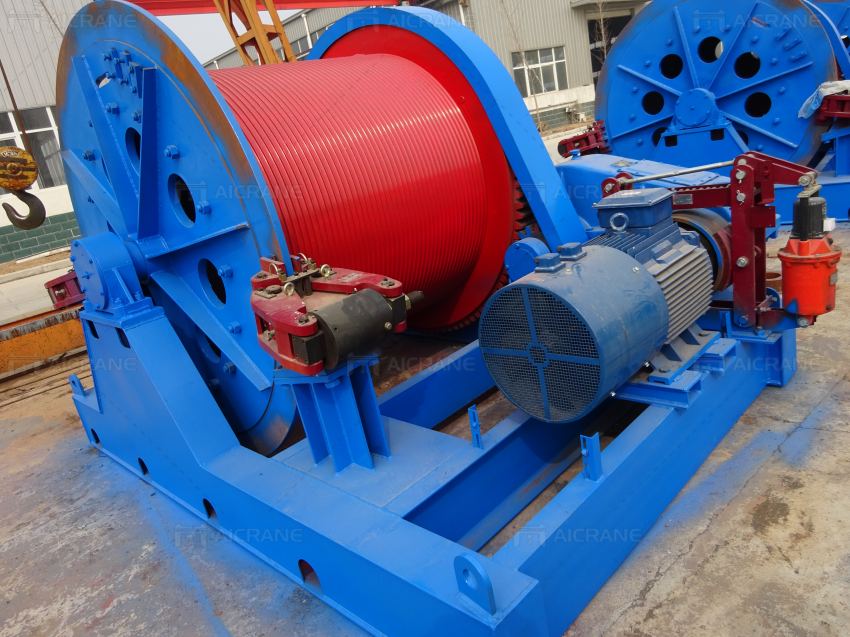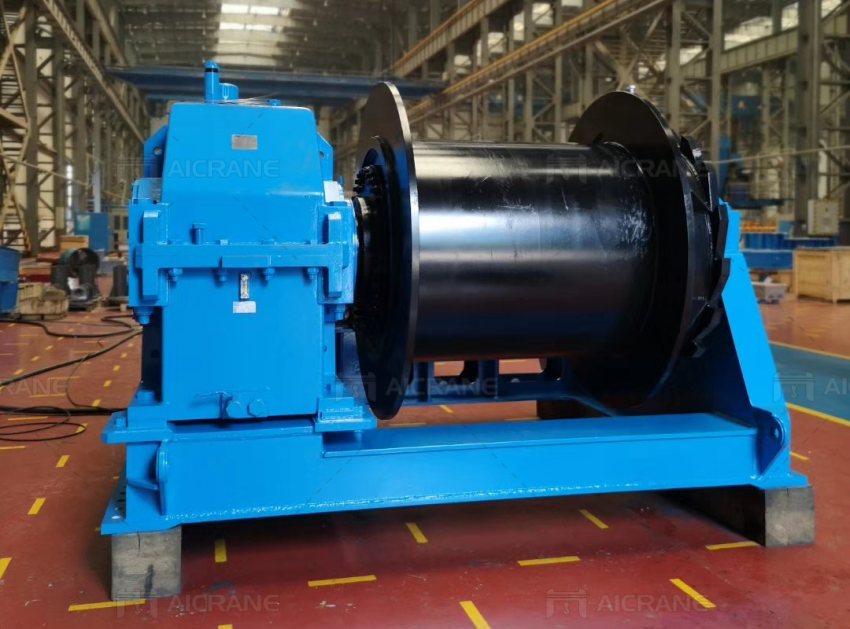A 50-ton winch is a heavy-duty winch designed to lift and pull loads weighing up to 50 tons. These winches are commonly used in a variety of applications, including marine, industrial, and construction settings.
Common Features of a 50-ton Winch
Electric or hydraulic power: A 50-ton winch may be powered by an electric motor or hydraulic system. The power source used will depend on the specific application and environment in which the winch will be used.
Heavy-duty cable: A 50-ton winch is typically equipped with a heavy-duty cable that can withstand the weight and force of heavy loads.
Multiple speed options: Some 50-ton winches are designed with multiple speed options, allowing the operator to adjust the speed of the winch to suit the specific needs of the job.

Automatic brakes: A 50-ton winch is often equipped with automatic brakes to ensure safe and reliable operation.
Remote control: Many 50-ton winches are equipped with remote control systems, allowing the operator to control the winch from a safe distance.
Load monitoring systems: Some 50-ton winches are equipped with load monitoring systems that can provide real-time feedback on the weight of the load being lifted or pulled, ensuring safe and accurate operation.
When selecting a 50-ton winch, it’s important to consider factors such as load capacity, power source, and safety features. It’s also important to ensure that the winch is properly maintained and operated by trained personnel to ensure safe and reliable operation.
50 ton Winch Selection Guide
When selecting a 50-ton winch, there are several factors to consider to ensure that you choose the right winch for your specific application. Here are some key considerations:
Load capacity: The first consideration when selecting a 50-ton winch is the maximum weight capacity that the winch can handle. Make sure the winch you choose is capable of lifting and pulling the weight of the loads you will be working with.

Power source: You will also need to decide whether you want an electric or hydraulic winch. Electric winches are often easier to maintain and less expensive to operate, but hydraulic winches may be more powerful and better suited to heavy-duty applications.
Cable type: Consider the type of cable that comes with the winch. Wire rope cables are commonly used and are strong and durable, but synthetic cables are lighter and easier to handle.
Control options: Determine the control options that will work best for your application. Will you need remote control or manual control? Do you need multiple speed options for precise control?
Safety features: Safety features are important to consider when selecting a winch. Look for winches with automatic brakes, overload protection, and load monitoring systems.
Environment: Consider the environment in which the winch will be used. Will it be exposed to the elements? Will it be used in a hazardous environment? Make sure the winch you choose is suitable for the conditions in which it will be used.
Manufacturer reputation: It’s important to choose a winch from a reputable manufacturer with a history of producing high-quality, reliable equipment. Do some research and read reviews from other customers to ensure that you choose a winch that will meet your needs and stand the test of time.